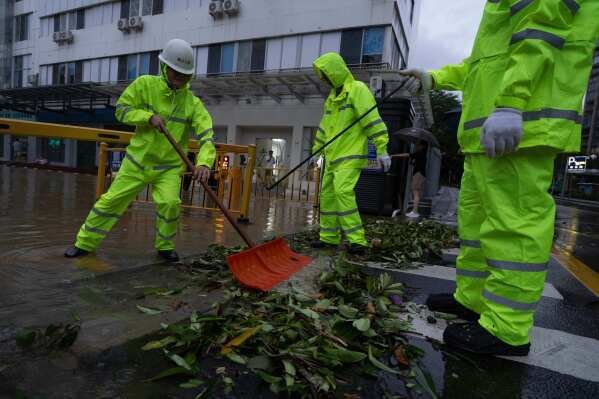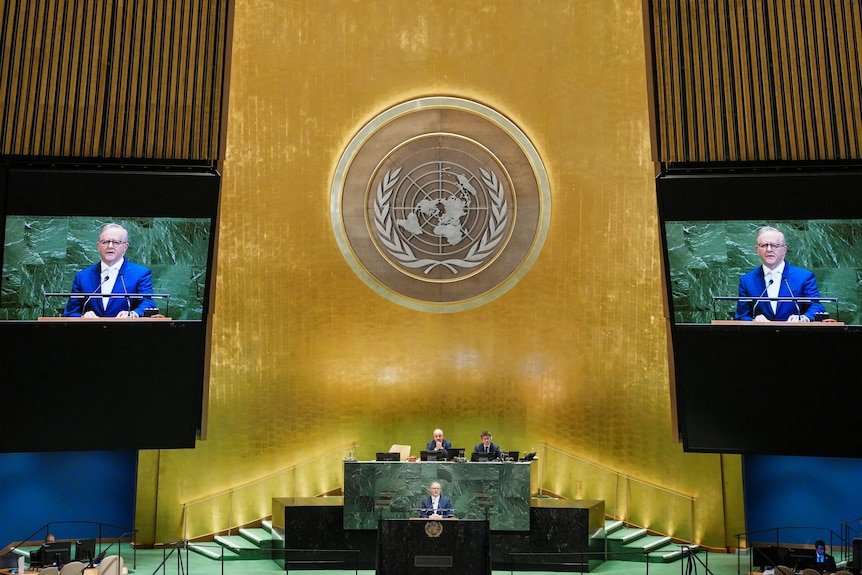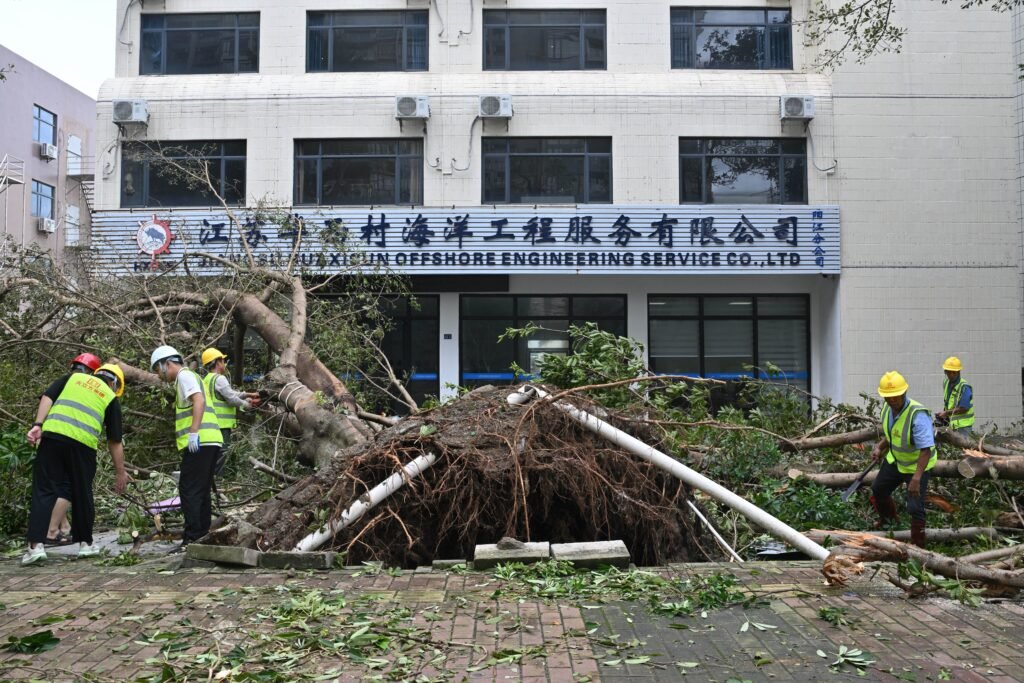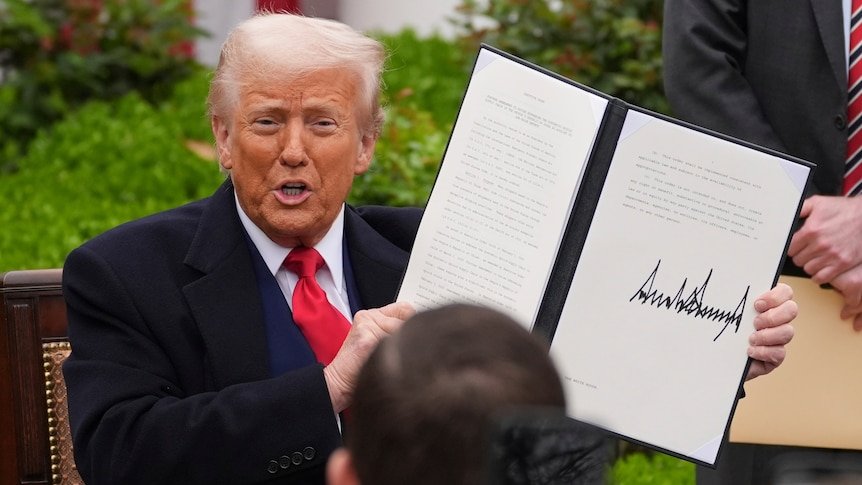China led several countries in announcing new climate plans on Wednesday and offered a veiled rebuke of the U.S. president’s anti-climate rhetoric a day earlier at the U.N. General Assembly.
Addressing a climate leaders’ summit hosted by U.N. Secretary-General Antonio Guterres, Chinese President Xi Jinping said in a live video message from Beijing that by 2035 his country would cut its greenhouse gas emissions by 7% to 10% from their peak.
In addition, Xi said China planned to increase its wind and solar power capacity by six times from its 2020 levels within the next 10 years — helping to increase its share of non-fossil fuels in domestic energy consumption to over 30%.
China‘s reduction target marked the first time the world’s biggest emitter pledged a cut in emissions, rather than just limiting their growth, though the reduction was less than many observers had expected.
Xi urged stronger climate action from the world’s developed countries. He referred, though not by name, to the United States for moving away from the goals of the Paris Agreement on climate change.
“Green and low-carbon transformation is the trend of our times. Despite some countries going against the trend, the international community should stay on the right track, maintain unwavering confidence, unwavering action and undiminished efforts,” Xi said.
On Tuesday, President Donald Trump used his U.N. General Assembly speech to blast climate change as a “con job,” to call scientists “stupid” and to criticize E.U. member states and China for embracing clean energy technologies.
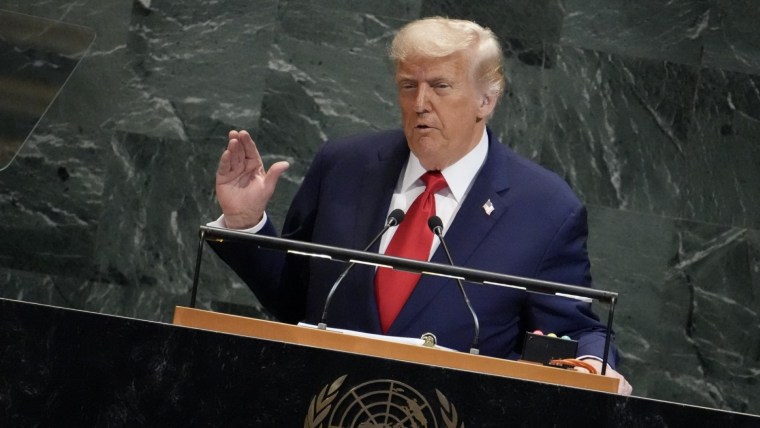
Trump ordered a second withdrawal by Washington from the 10-year-old Paris treaty, which aimed to prevent global temperatures from rising beyond 1.5 degrees Celsius through national climate plans. The U.S. is the world’s biggest historical greenhouse gas emitter and second-biggest current emitter behind China.
Ian Bremmer, a political scientist with the Belfer Center, said Trump’s climate denial speech had effectively ceded the market for post-carbon energy to the Chinese.
“Trump wants fossil fuels and the United States is indeed a powerful petro-state,” Bremmer said. “But letting China become the world’s sole powerful electro-state is the opposite of making America great again … at least if you care about the future.”
Observers had been hoping that China would seize on the U.S. retreat as a moment to announce a reduction target of at least 30% to stay in line with its past goal of net-zero emissions by 2060.
Li Shuo, director of the China Climate Hub at the Asia Society, said China’s announcement was underwhelming in light of its rapid production of renewable energy and electric vehicles.
“Beijing’s commitment represents a cautious move that extends a long-standing political tradition of prioritizing steady, predictable decision-making but also hides a more significant economic reality,” he said.
Li noted, however, that China’s dominance in green technology and Washington’s retreat could push China toward a more proactive role on the global stage.
Despite pressure for significant new climate commitments ahead of this year’s COP30 summit in Brazil, Wednesday’s announcements failed to impress.
Environmental groups and observers said pledges by some of the world’s biggest economies fell well short of where they should be in emissions reductions, given the rapidly worsening effects of climate change.
Brazilian President Luiz Inácio Lula da Silva warned that countries’ commitments made ahead of the U.N. climate summit in November would show the world “whether or not we believe in what the science is showing us.”
Brazil has committed to reducing emissions by 59% to 67% by 2035 and to stepping up efforts to combat deforestation.
“Society is going to stop believing its leaders,” Lula said. “And all of us will lose because denialism may actually win.”
Guterres, who hosted the summit on the sidelines of the U.N. General Assembly, assured that the world was making progress in the energy transition, even if it was slow.
“The Paris Agreement has made a difference,” Guterres said in prepared remarks, noting that actions taken under the 2015 treaty had lowered the projected rise in the average global temperature to 2.6 degrees C from 4 degrees C.
That’s still far from the treaty’s stated goal of holding to 1.5 degrees C. Already the world has warmed more than 1.2 degrees C from the preindustrial average.
“Now, we need new plans for 2035 that go much further, much faster,” Guterres said.



